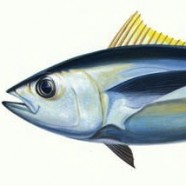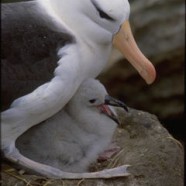A Taser for Soles
In 1868, a British patent was issued for an electric harpoon for whaling.
In 1931, the magazine Popular Science presented a technique, tried by the Australian State Fishery Station, of sending electric currents into the ocean shocking all nearby fish, bringing them to the surface where they are picked up by nets.
In 1985 Ifremer (1) recommended carrying out research and exchanging information on electric-fishing techniques.
In 1998, afraid of the impacts of “unconventional fishing methods” and catch efficiency on stocks the European Union prohibited “using methods incorporating the use of explosives, poisonous or stupefying substances or electric current(s)”. However, since 2004 clandestine fishing has been observed in Scotland and 15 years ago the use of electricity was authorised for tuna and basking sharks in certain zones of the Baltic.
The PCB Cookbook
Wearing their top chef’s hats, Ifremer, the General Department for Food, the Management of Maritime Fishing, and waterlife have made for you, just in time for New Year’s celebrations, a dish of the highest quality. It is recommended that you consume crabs fished from the depths of the Seine’s bay, and no longer adhere to the opinion of the National Agency for the Sanitation of Food, Work, and the Environment (ANSES) from May 13, 2011, and to forget the prefect of Haut-Normandie’s decree from July 29, 2011. According to the former, the crabs were considered not to conform to the regulated standards of polychlorinated biphenyl (PCB) and dioxin content, and the latter forbid both consumption and marketing.
Today, when you eat tuna, you’re killing an albatross.
Seabirds are victims of oil spills and other pollution. Plastic waste and ghost nets drifting in oceans are also threats along with invasive rodents on the shoreline. They are also victims of tuna fishing.
Urgent mitigation measures need to be taken by ICCAT to reduce by-catch of seabird populations such as albatrosses and petrels in tuna and tuna like species long-line fisheries. Recent worldwide estimates of seabird by-catch by long-line fisheries range between 160,000 and up to 320,000 each year of which a large proportion are albatrosses and petrels. It is estimated that the Japanese tuna fleet kills over 20,000 seabirds per year which seriously impacts albatross populations. According to a document presented to the Scientific Committee it is estimated that around 10,000 seabirds are victims of incidental catch every year within ICCAT’s zone of competence. Albatrosses are surface feeders and wait for the fishermen to throw out the fishing gear. Whereas petrels, such as white-chinned petrels (Procellaria aequinoctialis), plunge into the water depths to steal the bait, they become hooked, dragged along and eventually drown.
Will the “Arab Spring” be beneficial for Bluefin Tuna?
The 22nd regular meeting of the ICCAT is part of the Mediterranean Basin progressive political framework that focuses on the fishing of Bluefin Tuna. A number of NATO and military ships from ICCAT member states, in particular France and Italy, were busy around Libyan water and the Gulf of Syrte. Tuna fishing boats and their escorts have been sending Vessel Monitoring System (VMS) signals from this area prohibited from Bluefin fishing with a peak of activity in May and June.
Crabs Pinched by PCB
The port of Rouen wants to open a new disposal site for the sludge from dredging in the Seine’s bay. The public inquiry was closed yesterday. This 2 million meters³ “experience” covers itself in scientific fuss like the follow-up of the bioaccumulation of toxic elements contained in the sludge, thanks to the placing of 7 cages of mussels laid 2 to 10 km from the disposal site. This animal experimentation led by Ifremer is totally useless in regards to the ecological disaster that strikes a blow from heavy metals and PCB, endocrinal disruptors, at the ensemble of the Seine’s bay from the east to the west and from the top to the bottom.












